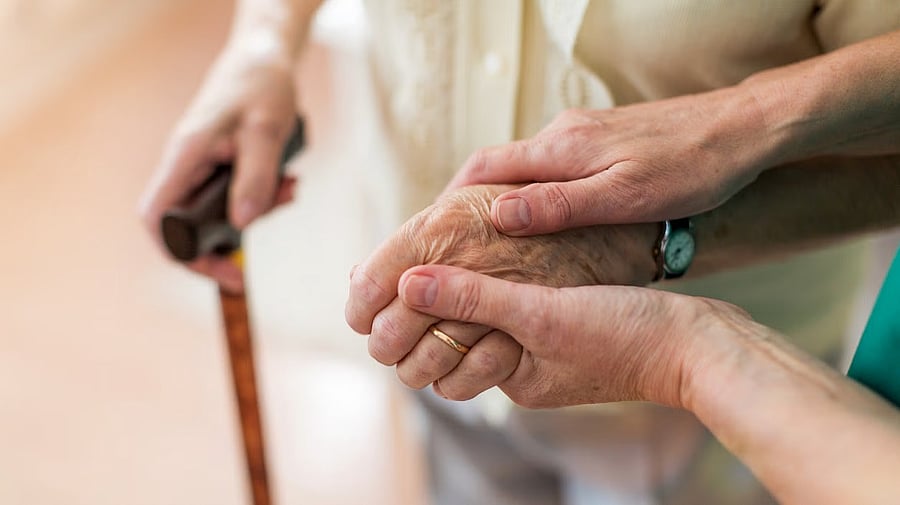
Representative image for senior citizen
Credit: iStock Photo
Bengaluru: Despite the city’s growing population, healthcare facilities for senior citizens remain inadequate, with many lacking essential services and staff, a survey by Akhila Karnataka Vayovruddara Okkuta (AIKYATA) has revealed.
The survey, covering 13 public health facilities (PHCs), found poor physical accessibility, cumbersome registration processes, and illogical operating hours as major stumbling blocks for elderly persons, especially those from the Below Poverty Line (BPL) category and retired informal workers.
The study found Namma Clinics presented a very different picture. Some were hard to locate, missing on Google Maps, or situated on the first floor with steep, unusable ramps that blocked access for wheelchair users and the elderly.
“When we go to the Namma clinic, we do get medicines for BP and sugar, etc, but this supply runs out in 15 days. No amount of requesting the clinic staff is of any use. We ask them to give us medicines for a whole month, but they do not give it to us. So, we end up taking the medicine erratically. Sometimes, we take it and sometimes we do not,” said a patient.
The report also noted “crowding of Namma Clinic facilities in some areas and absolutely no facilities in other areas”.
The push for digitalisation has worsened delays in registration. The introduction of QR code-based registration and the Ayushman Bharat Health Account (ABHA) number has led to long waits.
AIKYATA members observed patients waiting up to 90 minutes just to get a token. The system requires a smartphone, internet connectivity, and a multi-step login with OTPs, making it especially challenging for senior citizens.
The report further stated that despite holding BPL cards, some seniors were allegedly asked to pay bribes ranging from Rs 250 to Rs 1,500 for essential age and disability certificates needed to avail the state pension of Rs 1,200 a month.
Key findings
Healthcare providers lack specialised training to manage complex geriatric issues like dementia, Parkinson’s, and cardiac problems.
Screening, risk assessment, and physiotherapy remain unavailable for many seniors, especially those who are bedridden and require home care.
Public spaces remain unsafe, and essential assistive devices such as walkers, spectacles, and hearing aids are not reliably distributed.
Recommendations
Provide compulsory, specialised geriatric training to healthcare staff.
Ensure PHCs and Namma Clinics offer comprehensive screening, risk management, and home-based care for seniors with restricted mobility.
Start evening OPDs (4 pm–9 pm) at all public health facilities and guarantee access to a facility within half-a-kilometre radius.
Upgrade emergency infrastructure and create a functional referral system.
Collaborate across departments to resolve issues like nutrition and pensions and establish a reliable health database for senior citizens.